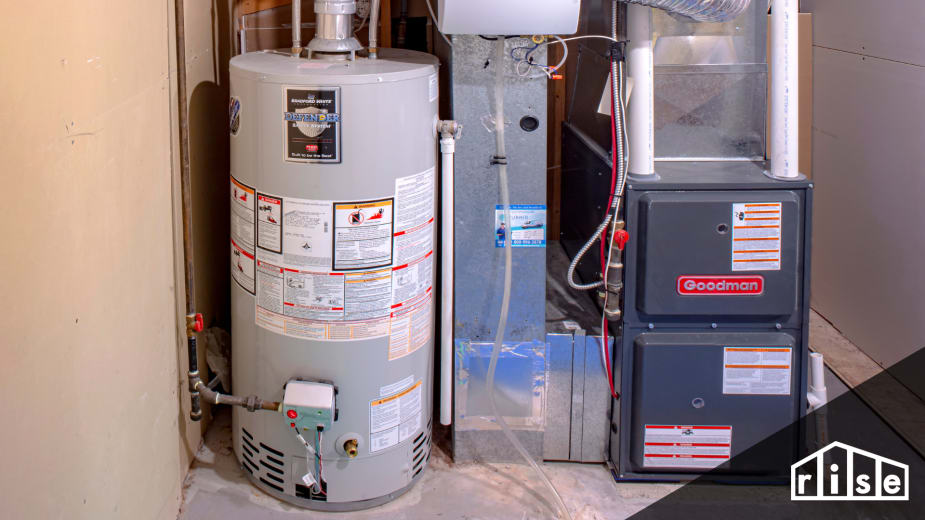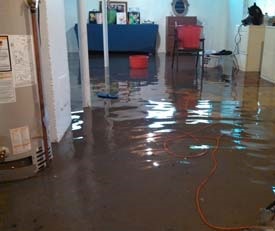Key Protocols for Residential Property Owners Dealing with Broken Water Heaters
Key Protocols for Residential Property Owners Dealing with Broken Water Heaters
Blog Article
The article in the next paragraphs on the subject of Water Heater Burst is relatively fascinating. You should see for yourself.

Whether it is situated in the basement or a different area, damaged water heating units can cause stress. Having no warm water supply is additionally bothersome.
Call the Plumber
After doing the first 2 safety actions, you should call your plumber to come right away to deal with a ruptured water heating system. There are typically indications that your aging water heating system has sediment buildup in the inside.
Don't wait for major flooding to call the plumber. Already, you will need to spend even more to restore your building. Instead, as quickly as you find these signs, have actually a professional pertained to inspect your hot water heater tank. Typically, water heaters have a life-span of regarding 8 to 12 years. With regular evaluation and also maintenance, you can extend its life.
Cut Off the Cold Water Supply
Cut off the tanks faucet water supply from the source. This goes from your primary water line right into the container. When your container is in good condition, the cold water stops filling up when the storage tank is complete. Yet because it is leaking, the water will continue to flow. Shut the shutoff located at the top of the heating unit. Rotate this clockwise to shut it off. You should transform off that primary water supply line outside your residential property if you can not discover it or reach it.
Shut Down Source Of Power
Prior to calling the plumber, shut off a gas water heater by turning the temperature level dial. This will certainly avoid electrocution, especially if there is a leakage as water is a conductor. Commonly, the home heating aspect closes off when the water hits a specific temperature level.
Tidy up Property
After calling the plumber, file damage by taking notes as well as images so you can claim your homeowner's insurance policy. From there, start the instant cleanup. Secure any kind of crucial possessions to avoid further saturating. Then, eliminate any standing water to avoid mold as well as mildew growth. If you have a submersible water pump, use that to drain the water. Or else, the conventional container method will likewise work. Try to wipe out everything, including wall surfaces and also baseboards. If you have an electric follower and dehumidifier, keep them going to maintain air circulating. This will certainly help discourage mold and mildew development.
Bear in mind, if you see any type of issues with your water heating system, call the pros right away. You can not take this issue gently since a damaged thermostat can increase water temperature to a dangerously high degree, leading to unintentional burns.
After doing the very first 2 safety and security steps, you need to call your plumber to come right away to fix a ruptured water heater. Instead, as quickly as you identify these indications, have a specialist come to evaluate your water heater storage tank. Before calling the plumber, closed off a gas water heating unit by turning the temperature dial. If you have a submersible water pump, make use of that to drain pipes the water. Bear in mind, if you notice any type of concerns with your water heater, call the pros right away.
Is My Water Heater Broken?
The Water Heater is Old
No appliance will last forever. This includes a home’s water heater. During its lifespan, residents are going to face a situation where a new water heater installation will be necessary. The biggest problem with this is that most people are not sure when their water heater expires. Not knowing this can lead to serious risks if the unit begins to act up due to old age.
Most makes and models of water heaters will last between eight and 10 years. While 10 years is the age when water heater replacement is highly recommended, the need to replace the unit may occur before this time or after. If the unit doesn’t show any symptoms of a problem, it is a good idea to replace it at the 10-year mark (from the manufacture date).
Some of the symptoms that indicate a new unit is needed include rusting, leaks, noises, and a failure to heat up the water. Also, note that not all units have a 10-year life expectancy. The main exception to this rule is that a gas unit will last for six to eight years.
Rusty Heater Inlet Valve or Water
While steel is the strongest material on earth, it does have a weakness – rust. If corrosion occurs on a steel surface, it will begin to spread and eat through the steel in certain areas. On water tanks and pipes that are made of steel, rust is a warning sign of an impending leak.
The issue for many is trying to figure out if the rust is coming from the water heater or the pipes that lead to the faucet. If rust is seen, it is a clear indication that water heater service from the professionals is needed.
If rusty water appears out of the faucets in the bathtub or sink, it likely means a rusty water heater. If there is rust near the water inlet or the pressure relief valve, rust has likely developed inside the tank. If tap water appears rusty, it may be an issue with the pipes.
Strange Sounds from the Water Heater
Are there strange sounds coming from the tank? As a water heater gets older, rumbling noises may develop and get louder and louder as the water in the tank heats up. In homes where large amounts of hot water are used, the issue is likely going to be even more obvious when more serious issues arise. If there is a strange or loud noise coming from the unit, it is probably because of sediment buildup. A good way to remedy this problem is by flushing the heater. If this does not work, then a new unit may need to be installed.
Leaks
As a water heater gets closer to the end of its useful life, there is a higher chance there will be water around the tank. If there is water, this usually means leaks are occurring. Based on where the unit is located in the home, a leak may result in serious property damage.
Leaks are usually caused by expansions in the metal tank. The expansions occur as time passes and as the inside body of the tank is exposed to multiple heating cycles per day. When a fracture forms, the gap will be slight enough to hold the water in; however, in more serious situations, this will not be the case. If the tank is idle, the water will not leak but when the metal expands during each heating system, small amounts of water will get through the gap.

We are very inquisitive about Maintaining & Draining a Water Heater and I really hope you enjoyed my blog entry. Are you aware of somebody who is sincerely interested in the subject? Feel free to promote it. Thanks a bunch for your time. Visit again soon.
Quote Report this page